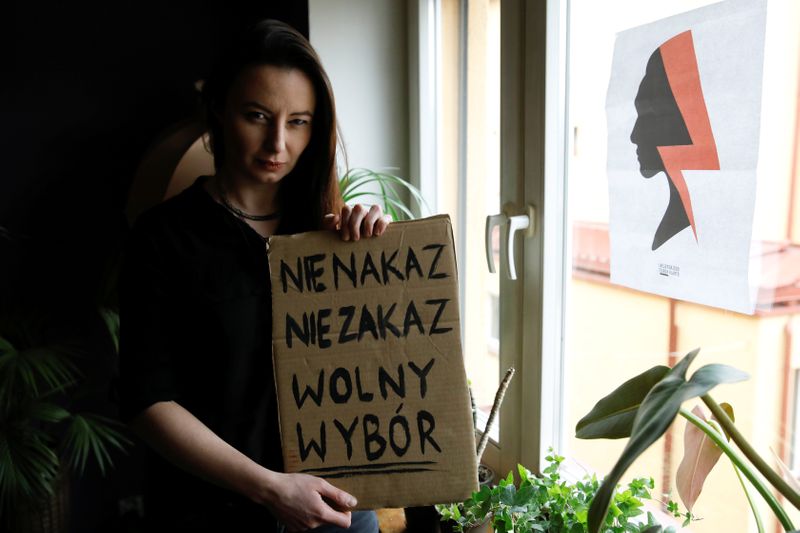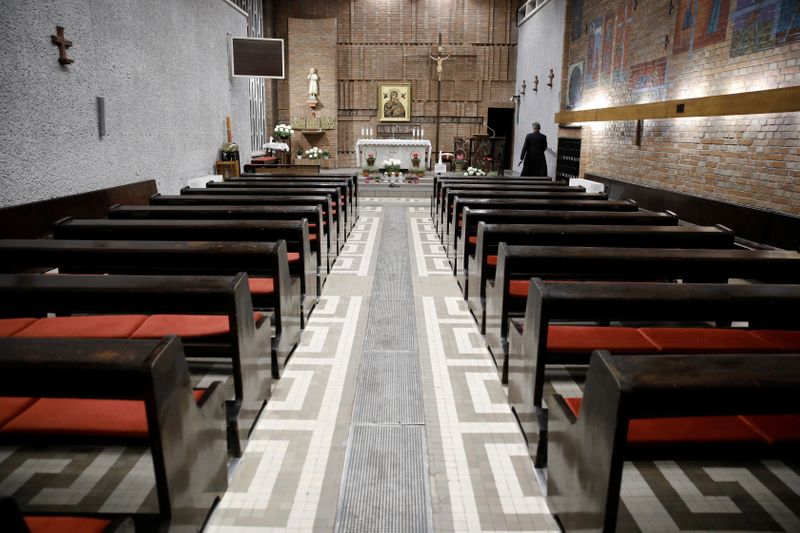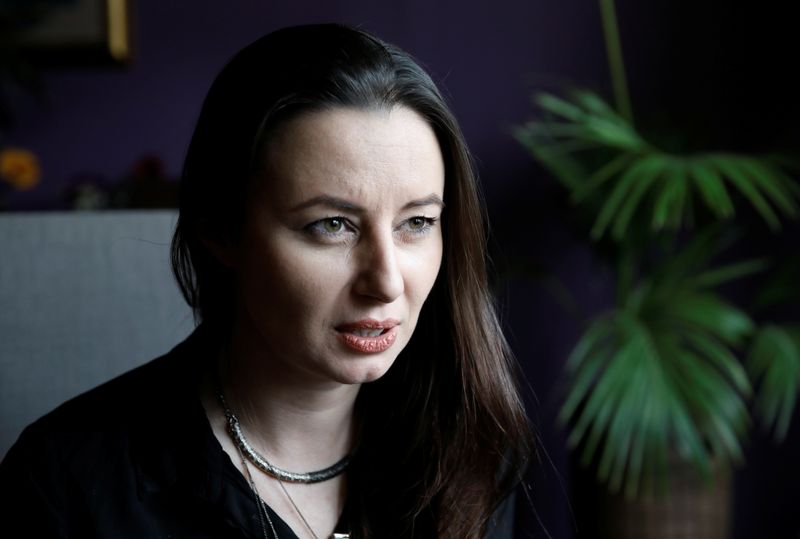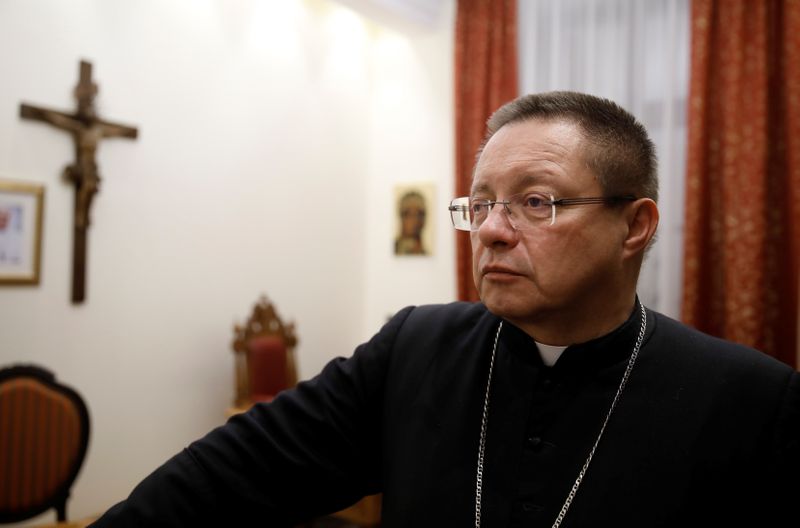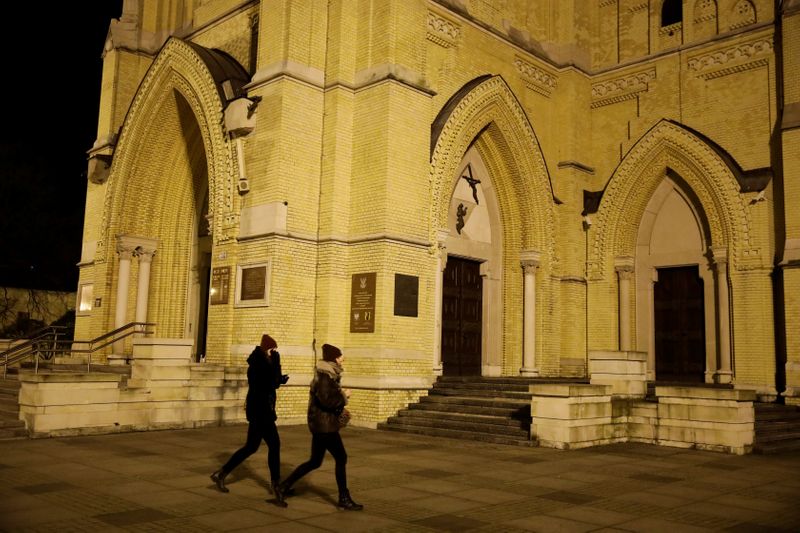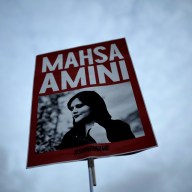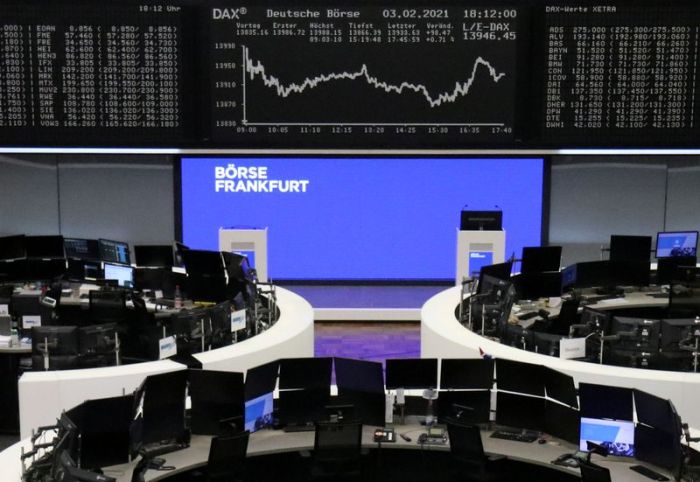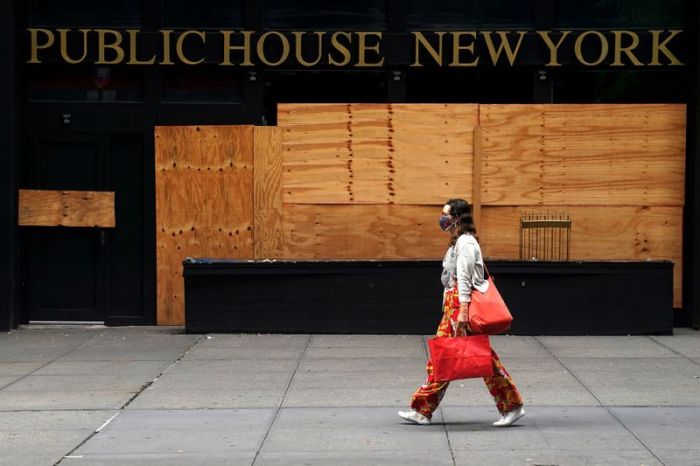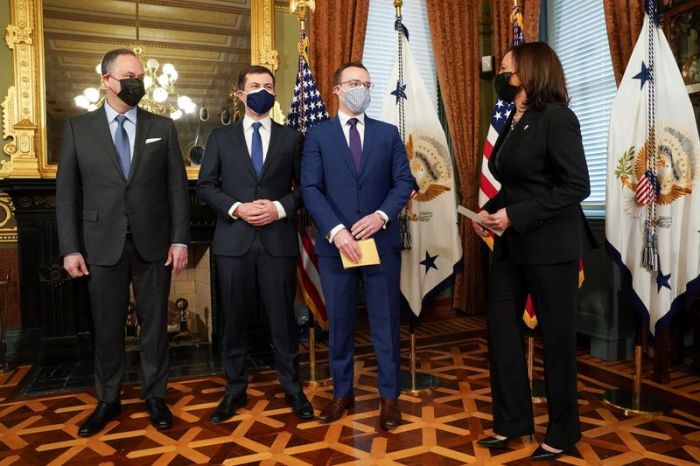WARSAW (Reuters) – Katarzyna Lipka is no longer Catholic, and she says that is a political statement.
Like most Poles, the 35-year-old has marked life’s milestones in the Church, a beacon of freedom in Communist times. Also like many, she’d been drifting away. In November, after the country’s courts decreed a clampdown on abortion that the bishops had lobbied for, she filed papers to cut loose.
“I used to think being passive was enough – I just didn’t take part,” Lipka told Reuters, curled up in an armchair in her apartment. “But I decided to speak up.”
For Lipka, abortion is only part of the problem. Her main concern is one many Poles, particularly young people on social media, often complain of: The Church’s increasing reach into other areas of life.
“I want – and I think all those who are leaving the Church now want – to voice our objection to what is happening now. To influence politics, our rights,” she said, adding that the Church was being allowed to have too much influence in areas such as politics, state spending and education.
Young adults in many countries are becoming less religious, according to research by the Pew Center. In Poland, a growing number of its 32 million Catholics are turning away. In 1989 when Communist rule ended, nearly 90% of Poles approved of the Church, according to the state-affiliated CBOS opinion poll. That figure is now 41% – the lowest since 1993.
The relationship between Church and state in Poland is governed by an agreement signed by Warsaw and the Holy See from 1993 that says they are independent and autonomous.
In reality, Poles see an increasingly explicit connection.
For example, priests have displayed election posters on parish property or discussed elections during mass – almost always in favour of the governing party – in more than 140 cases over the last five years, according to a Reuters tally of archived local media reports. During that time Poland has held five elections.
“What I don’t like in the Church is that it turns places of worship into a political bazaar, where my rights are being traded,” Lipka said.
The Polish Bishops’ Conference, which represents the Church in the country, declined to comment on the role of the clergy in political campaigning.
The government said it remained impartial towards religious belief and protected freedom of religion. “The relationship between the state and the Church as well as other religious organisations is based on respecting their autonomy and mutual independence … as well as cooperation for the common good,” it said in an emailed statement.
APOSTASY
In October, Poland’s Constitutional Tribunal ruled that women should be prohibited from aborting a foetus with abnormalities, a ruling the government enforced on Jan. 27. About 1,000 pregnancies have been terminated legally each year in Poland, most due to foetal problems.
The Church considers all abortion to be murder. It says it was not involved in the court decision and government officials also told Reuters the Church had not influenced it. But in mass protests that followed, tens of thousands of people blocked roads and city centres carrying banners with slogans like “Get your rosaries off my ovaries.”
Church officials stopped collating data on defections in 2010 so there is no nationwide total. In Warsaw, more people filed to quit last November than in all of 2019. The 577 acts of apostasy – the formal process of leaving the Church – booked between January and mid-December were nearly double the 2019 figure.
After the abortion ruling, Polish Google searches for ‘apostasy’ jumped to their highest since counting began in 2004. Thousands signed up for Facebook pages advising the documents needed, which include recent proof of baptism obtained from the parish where the ceremony took place. A website offering documentation, www.apostazja.eu, has had more than 30,000 downloads, its founder says.
“Whatever the reason, this is dramatic,” archbishop Grzegorz Rys, one of the most senior clerics in Poland, told Reuters.
Given the scale of revolt, he believes many are quitting in protest at what they see as increasingly tight bonds between the Church and the governing Law and Justice (PiS) party. The party’s ratings in most opinion polls have slipped to around 30% from more than 40% last August.
“SPECIAL MERITS”
The Catholic Church is at Poland’s core. According to Church data, 88% of children attend catechism classes in state-run schools.
In the 1980s, the Church was a voice of freedom: Pope John Paul II earned iconic status for inspiring people to stand up against Communist rule. Parish priests sheltered anti-government activists and helped distribute food and underground newspapers.
After Communism fell, the clergy pushed for a return to conservative Catholic values and in 1993, when Poland introduced new curbs on abortion, Church approval ratings fell below 40%. They have since recovered but never above 75%.
Over the next few years, as Poland introduced market reforms and joined the European Union, poorer, less educated voters felt left behind – a trend PiS promised to reverse when it came to power in 2015.
The party, whose strongest support is among older, rural voters, has spent millions of euros on Church-run projects, government documents show. PiS has overhauled a number of institutions, including the Constitutional Court, in reforms that the European Union says have increased political influence on the legal system. PiS disputes that.
The party sees the Church and Polish national identity as one. Ryszard Czarnecki, a senior lawmaker for PiS, says that while the party and the clergy should be seen as independent, the Church’s role in “preserving national identity” is undeniable.
“Poland has its specificity and the Church has its special merits here,” he told Reuters.
MORAL TEACHINGS
For PiS, the Church is a repository of Poland’s moral teaching: “The only alternative … is nihilism,” it said in a 2019 election campaign programme.
Public TV, run by a former PiS politician, runs nearly nine hours of Catholic programming a week, including church service broadcasts.
Church symbolism reaches deep into Poland’s political life. In 2015, a group of lawmakers from across the political spectrum placed a vial of blood from the late John Paul II – born in Poland and declared a saint in 2014 – in the chapel of the House of Parliament.
Last December, parliament added another relic – a strand of beard hair purportedly belonging to a monk killed in a Nazi German concentration camp. The monk, Saint Maximilian Maria Kolbe, was canonized in 1982 for volunteering to die in place of another prisoner.
Elzbieta Witek, the PiS-appointed parliament speaker, ceremonially received the relic for the house. She declined to comment for this story.
PiS fuses piety and nationalism to the point where a central banker nominated and chosen by the party has published his views on moral topics.
Eryk Lon wrote a piece about interest rates in 2019 in which he urged the faithful to pray for the “evil spirit of cosmopolitanism” to be eradicated from universities, particularly from business schools. He did not respond to a request for comment for this story.
Same-sex marriage is illegal in Poland and senior Church officials have supported a government crackdown on LGBT rights. One archbishop, Marek Jedraszewski, warned in 2019 against a “rainbow plague” spreading through the nation. He did not respond to a request for comment.
Lipka feels it is inappropriate to hold up the Church as a moral beacon. She said she was particularly repulsed by a report from the Vatican in November that said John Paul II had promoted ex-U.S. Cardinal Theodore McCarrick despite rumours of his sexual misconduct. McCarrick has declined to comment on the report.
“AFRAID OF THE NEW”
Sebastian Duda, a theologian and a Catholic journalist, says Poland’s court ruling on abortion brought to light how far faith has eroded – a trend that he thinks has accelerated because of “the evident marriage between PiS and the Church,” which he said is unacceptable for many.
Some priests, such as Pawel Batory from the southern city of Rzeszow, a PiS heartland, say it’s time for the clergy to retreat from politics.
Batory, who was among more than 150 priests and nuns who issued a public appeal in October for more separation of Church and State, complains about election campaigning in places of worship.
Lipka says she believes popular opinion in the country as a whole is slowly turning away from conservative Catholicism.
Even her mother, a devout Catholic, agrees with some of her reasoning, she said, but worries about what funeral rites her daughter can expect.
“My mother doesn’t know any funerals other than Catholic ones,” said Lipka. “And she is afraid of the new.”
(Pawel Florkiewicz, Anna Koper and Anna WLodarczak-Semczuk in Warsaw and Philip Pullella in Rome; Edited by Sara Ledwith)

